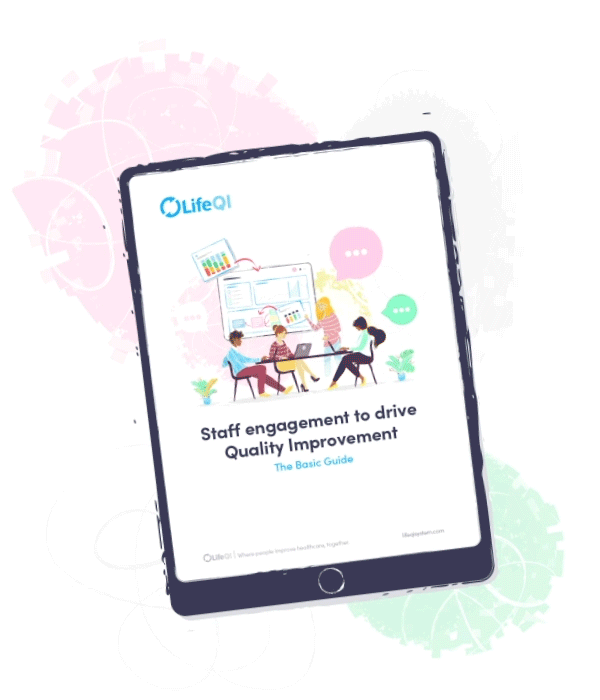Staff Engagement to Drive Quality Improvement

Staff engagement has shown to be a key factor in the success of quality improvement techniques. Staff and patient satisfaction surveys demonstrate that healthcare organisations that use QI well and have a good improvement culture deliver better patient outcomes, with more engaged and patient-focused staff.
Learn how patient care can be enhanced by engaging healthcare staff in improvement and developing a continuous improvement culture.
Get Your Free Guide
What's inside
Selecting the team members for your QI project isn't the end of your job - actually it's just the beginning.
Learn how to engage and motivate them to sustain quality improvement in your organisation!

|
Benefits of staff engagement in QIBetter staff engagement means better patient outcomes. But not only. Motivated and empowered staff create many benefits that can be felt across the healthcare continuum. |

|
Leadership skills for engaging staffStaff engagement is directly linked to patient and quality benefits, so we analyse the necessary leadership skills for engagement, both in a broader context and also linked to success in Quality Improvement (QI). |

|
Collaborative workingIntroducing teamwork in your Quality Improvement activities can be beneficial, while good communication also plays a big part in the success of a QI project by helping build an empowered team. |

|
Reward and recognitionReward and recognition are widely used across healthcare to help with staff motivation. We show some tried and tested methods to help motivate your staff to keep performing well and spread QI. |

|
The importance of QI trainingEmbedding an understanding of QI into the training and education of all healthcare professionals through shared learning is essential to get them on board, engaged and motivated for the QI journey. |

|
Staff motivationWhy is motivation so important in healthcare QI? As improvement is dependent on the willingness to change and to change behaviour, motivating QI teams is essential for continued success. |

